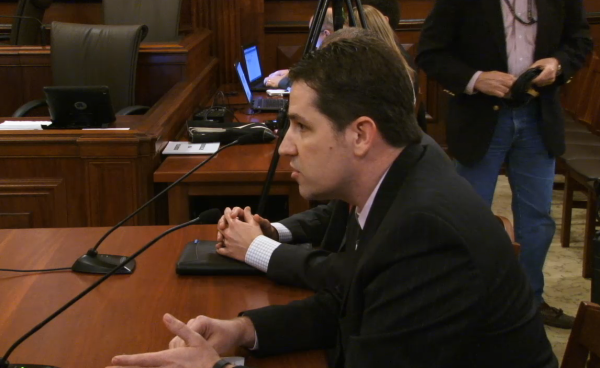
Illinois Association for Behavioral Health Vice President for Substance Use Policy Eric Foster
(Springfield, IL) – A top Illinois behavioral health advocated lauded Governor Bruce Rauner’s approval on Tuesday of legislation requiring law enforcement to develop policies to care for intoxicated young people after a D.U.I. arrest, including attempts to contact a responsible adult.
“Providing new, standardized training for local law enforcement across the state on the appropriate police responses to youth arrested for being under the influence of alcohol or drugs can potentially help avert individual and community tragedies,” said Illinois Association for Behavioral Health Vice President for Substance Use Policy Eric Foster. “We commend Governor Rauner for signing this measure to help to decrease harm to youth and others.”
The legislation is named after Conor Vesper, a 20-year old college student from Macoupin County who committed suicide hours after a drunk driving arrest. Vesper was the valedictorian of Staunton High School and an active campus leader at Blackburn College where he had earned a full ride scholarship.
“Following an arrest, it is critical that we protect impaired young people while they are still at risk for dangerous decision-making,” said Rauner. “Ensuring law enforcement has thoughtful policies related to the care of individuals under the influence that focus on reaching out to responsible adults will help prevent tragic situations and protect all Illinoisans.”
Conor’s Law requires the Illinois Law Enforcement Training Standards Board to develop policies regarding the response and care for intoxicated young people after an arrest.
The bill’s chief sponsor, State Senator Andy Manar (D-Bunker Hill), expressed his appreciation to Rauner and cited the bi-partisan effort to advance the legislation.
“I appreciate that Gov. Rauner saw the merit of this bipartisan legislation and chose to make it the law in Illinois,” said Manar. “Well over a year of work went into Conor’s Law and my only hope is that it prevents other families from experiencing the same heartbreak and anguish the Vespers experienced when they tragically lost their son, Conor. The Vesper family should be commended for their determination.”
Foster noted that IABH worked on the bill with Manar and praised the senator for his “thoughtful collaboration.”
“IABH worked with Senator Manar and his staff on the bill,” said Foster. “The senator’s thoughtful collaboration made it a good bill that we could support.”




